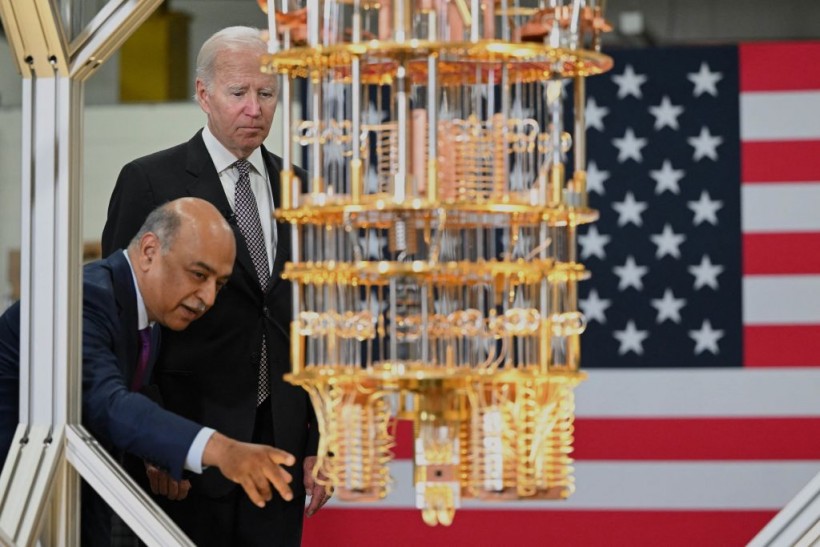The US Department of Energy (DOE) recently made a significant announcement by unveiling an investment of $11.7 million for six collaborative projects aimed at advancing our understanding of quantum computing and its potential to revolutionize computational science.

US President Joe Biden looks at a quantum computer with IBM CEO Arvind Krishna as he tours the IBM facility in Poughkeepsie, New York on October 6, 2022. - IBM's CEO Arvind Krishna announced Thursday a $20-billion investment in quantum computing, semiconductor manufacturing and other high-tech areas in its New York state facilities.
Pushing the Boundaries of Quantum Computing
"Quantum computing is a rapidly advancing technology that may one day push the boundaries of computational science beyond what we can achieve with exascale machines like Frontier," Ceren Susut, Acting Associate Director for Advanced Scientific Computing Research, said in a press release.
Susut emphasized the importance of comprehending the potential of quantum computers, as today's supercomputers allow scientists to delve into previously unattainable scientific challenges.
Supercomputers play a crucial role in advancing scientific knowledge, from modeling dangerous or expensive experiments to accelerating clean energy solutions and addressing climate change impacts.
Understanding the capabilities of quantum computing can pave the way for future generations of supercomputers, according to Susut. These six selected projects will explore the limitations of today's noisy, intermediate-scale quantum processors.
The primary goal is to develop assessment tools to determine whether a specific quantum processor can advance the frontiers of computational science, even without formal error correction on the device.
The funding for these projects was obtained through a rigorous peer review process as part of the DOE Funding Opportunity Announcement "Quantum Testbed Pathfinder."
A total funding of $12 million has been allocated to support these projects, with a duration of up to four years. For fiscal year 2023, $4.8 million has been designated, and further funding in the following years is contingent on congressional appropriations.
To access additional details and information about each project, interested parties can visit the ASCR program website.
The Quantum Potential
Quantum computing has emerged as a revolutionary field of technology, holding tremendous promise for scientific discovery and computation.
Unlike classical computers that use binary bits (0s and 1s), quantum computers use quantum bits or qubits, which can exist in multiple states simultaneously, enabling them to perform complex calculations at unparalleled speed.
This potential opens up new avenues for solving complex problems across various domains, from cryptography to drug discovery. The DOE's investment in these collaborative projects underscores the government's commitment to staying at the forefront of quantum computing research.
By exploring the capabilities and limitations of current quantum processors, scientists may gain invaluable insights into how to harness this cutting-edge technology for real-world applications.
"It's imperative that we understand what quantum computers are capable of so we can build future generations of supercomputers," Susut noted.
Related Article: IBM Quantum Computers: Research Shows First Proofs About Advantages, Says it Offers More Value






